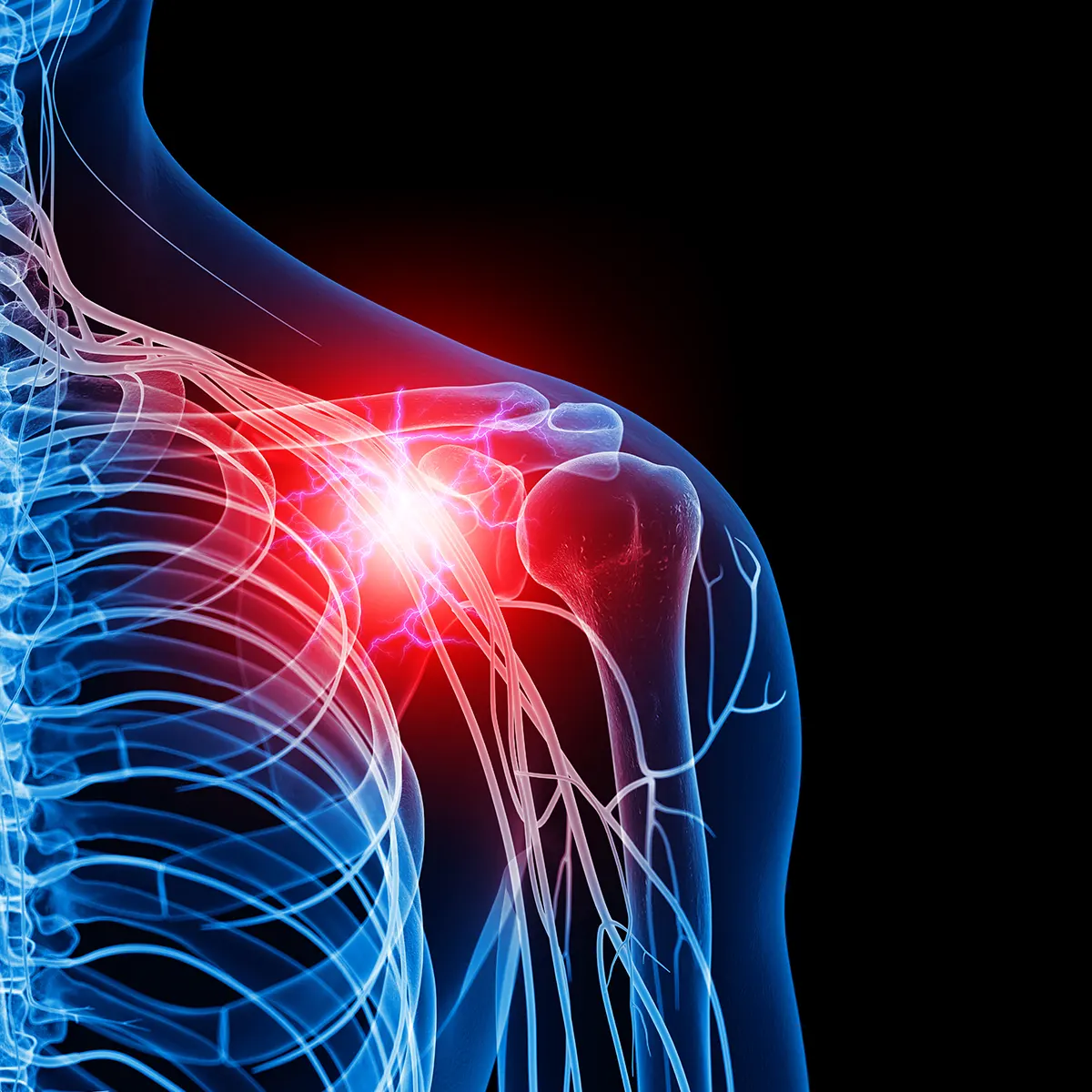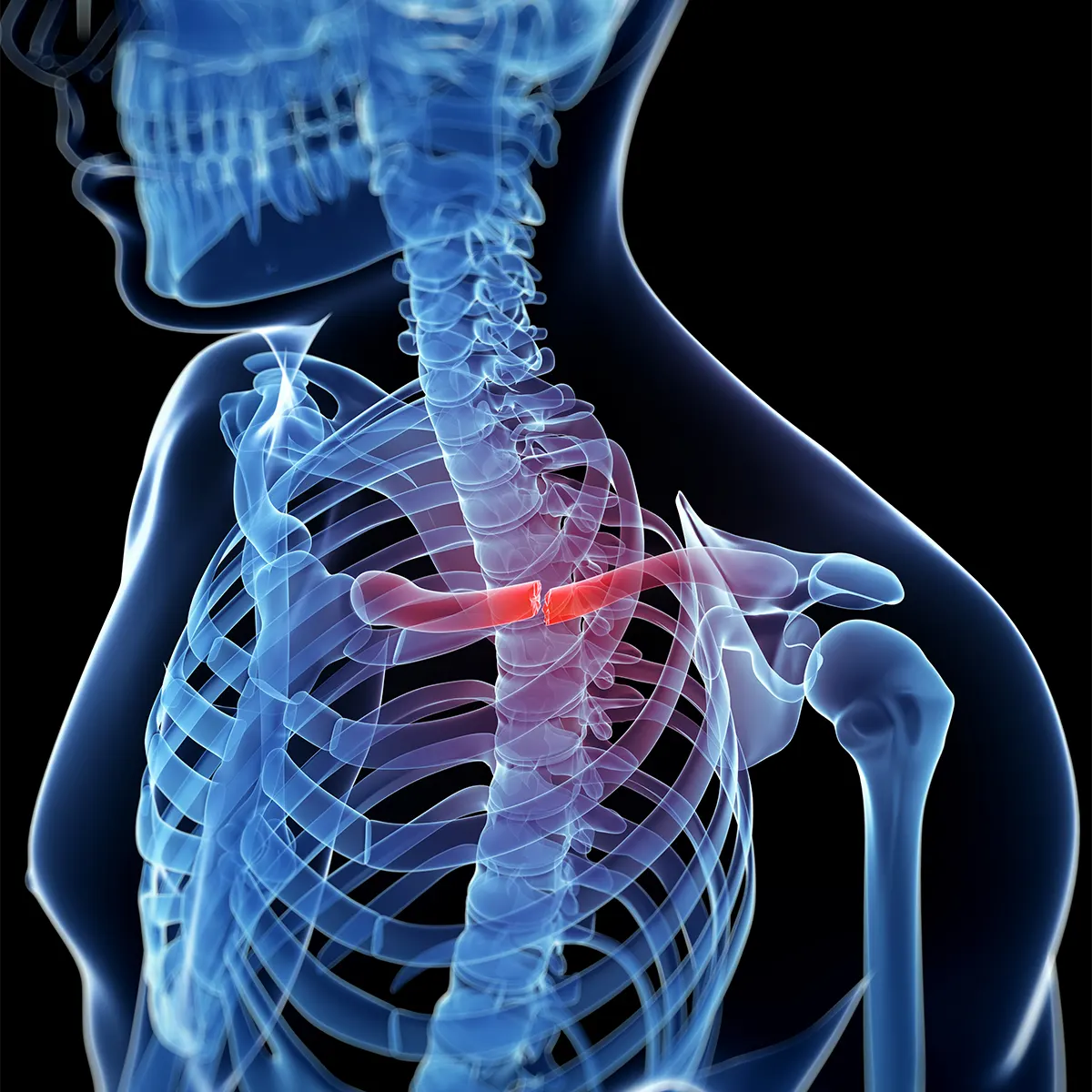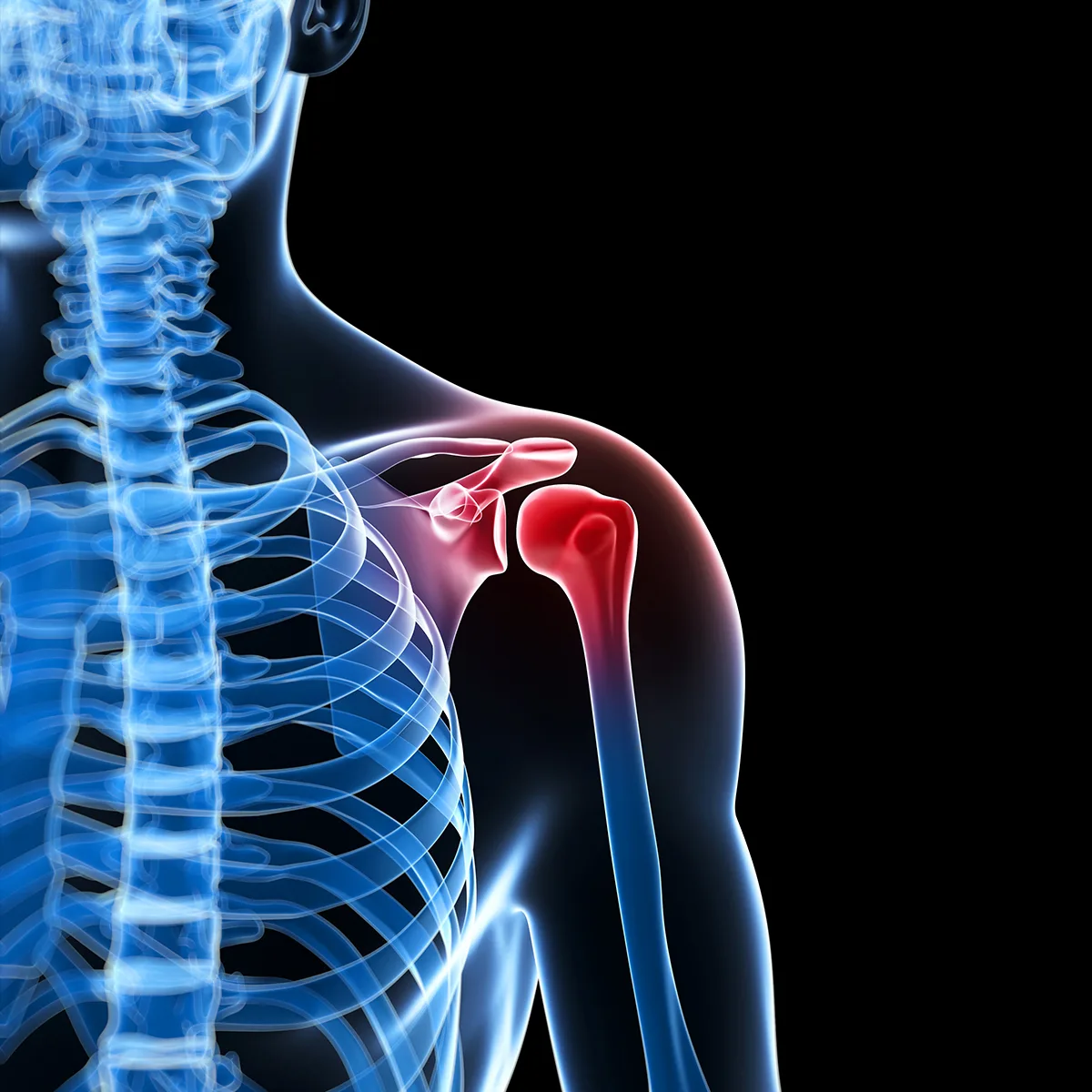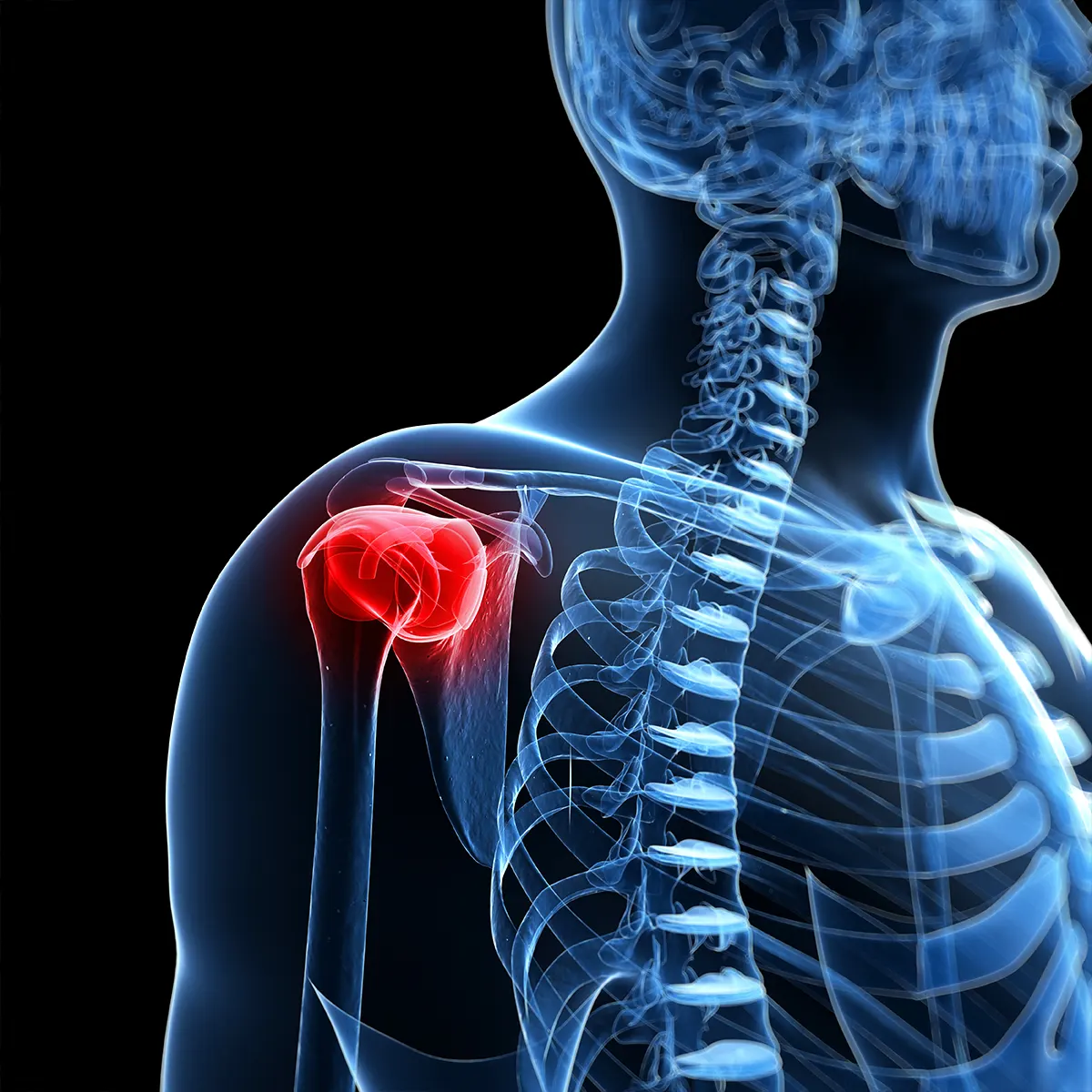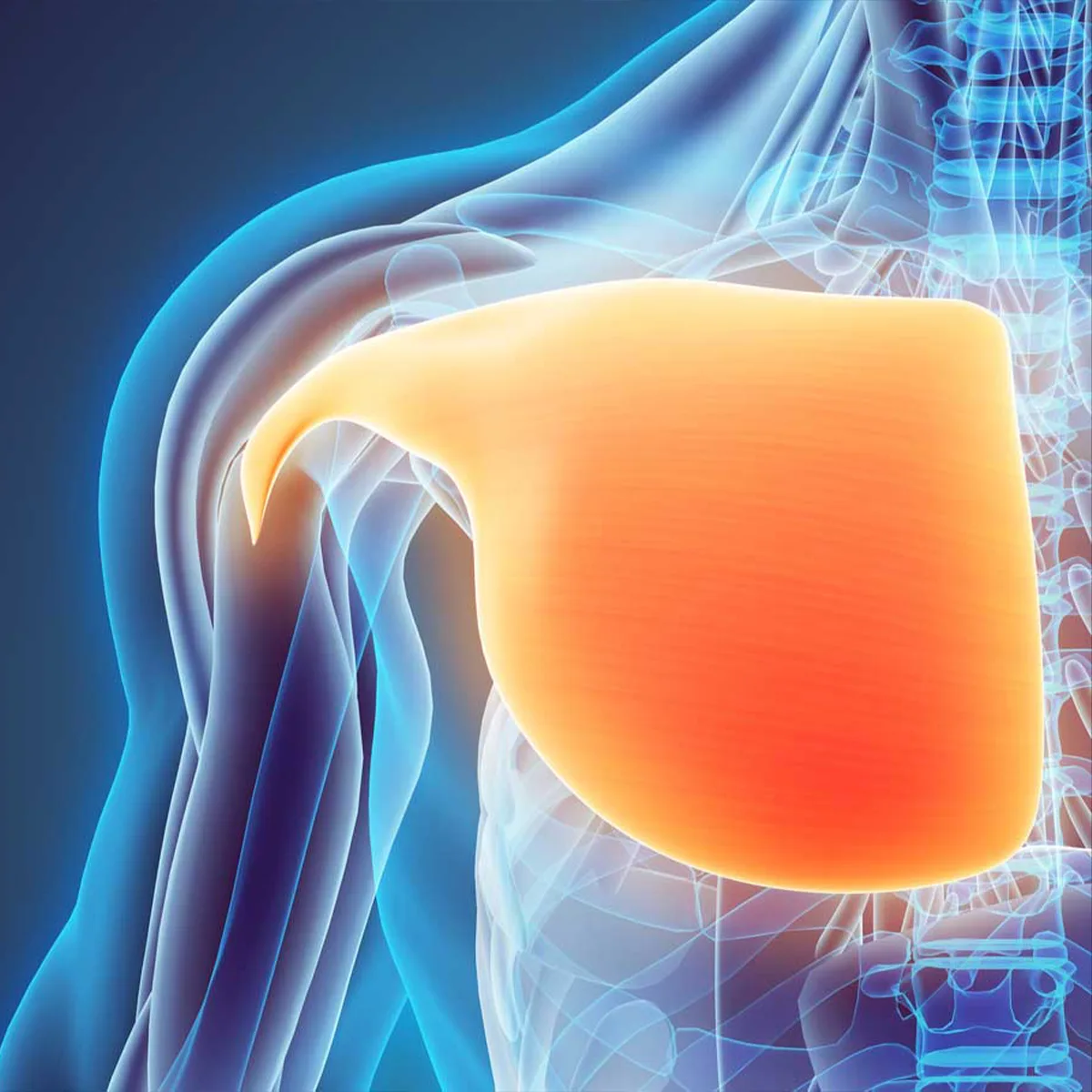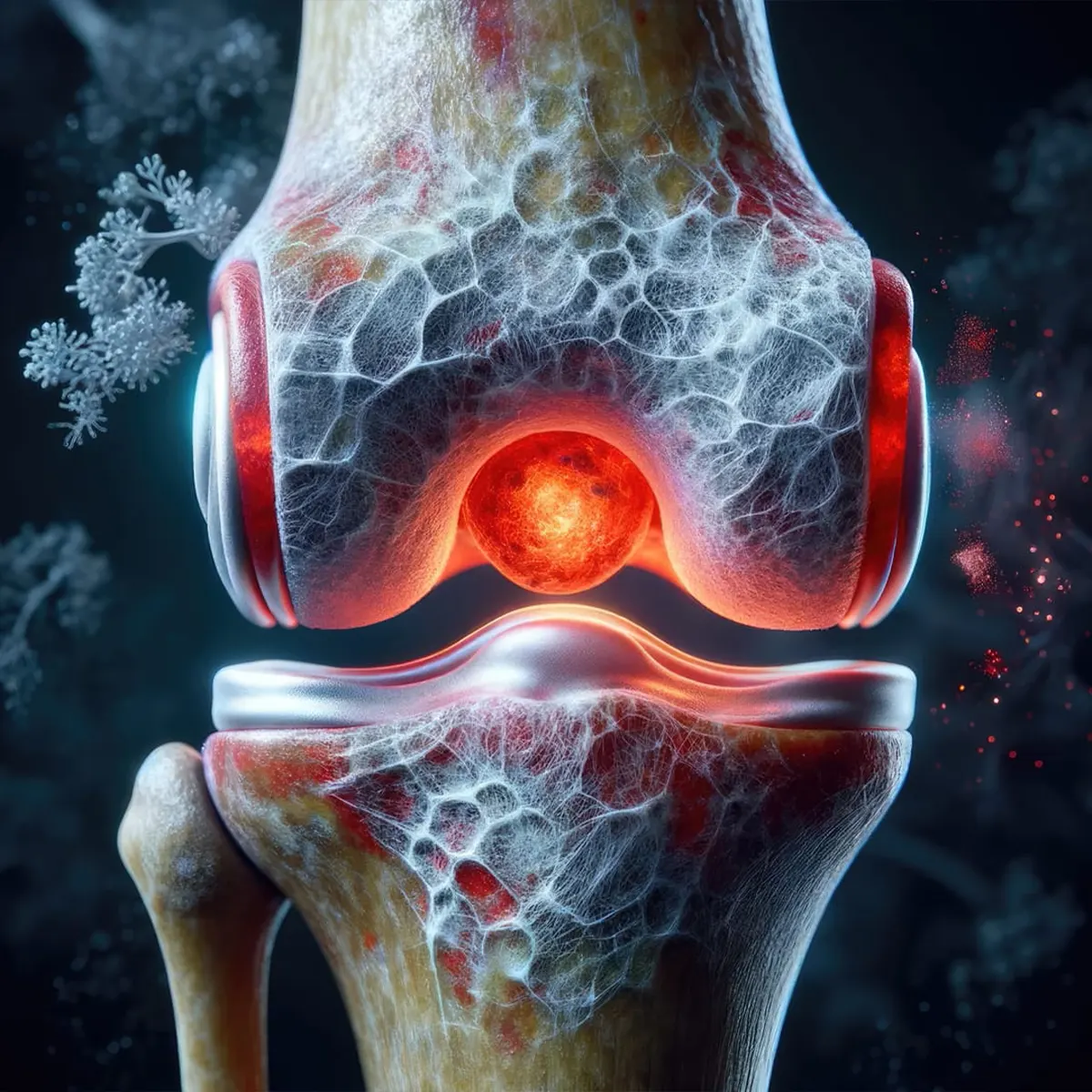Frozen Shoulder, or adhesive capsulitis, is a condition where shoulder movement becomes severely limited due to pain and stiffness. This condition happens when the tough connective tissue surrounding the shoulder joint—known as the shoulder joint capsule—becomes thick, inflamed, and tight, restricting the range of motion. The shoulder joint, often referred to as a ball-and-socket joint, is kept stable by this capsule, which contains the ligaments connecting the upper arm bone (humerus) to the shoulder socket (glenoid).
The term “frozen” shoulder describes the painful cycle that restricts movement: the more discomfort you feel, the less you use your shoulder, causing the joint capsule to stiffen further. This lack of movement then “freezes” your shoulder in a restricted position, making it harder to perform daily activities.
Frozen Shoulder Symptoms
Symptoms of frozen shoulder are divided into three distinct stages, each with specific characteristics. Understanding these stages can help individuals in Kenya recognize symptoms early and seek appropriate treatment.
- The “Freezing” Stage - In the freezing stage, shoulder stiffness and pain gradually increase, often becoming worse at night. Movement becomes increasingly difficult, and shoulder discomfort can interfere with daily tasks. This stage may last between six weeks and nine months.
- The “Frozen” Stage - During the frozen stage, pain may decrease, but stiffness persists, making shoulder movement challenging. Even simple activities become difficult to perform, as the joint remains tight and "frozen" in place. This stage can last from two to six months.
- The “Thawing” (Recovery) Stage - In the thawing stage, pain continues to decrease, and shoulder mobility begins to improve. With regular movement and physical therapy, many individuals experience a return of strength and motion, achieving near full or full recovery. This recovery stage can last from six months to two years.
Adhesive Capsulitis Causes
Researchers are still working to understand the exact causes of frozen shoulder, also known as adhesive capsulitis. This condition occurs when inflammation causes the shoulder joint capsule to thicken and tighten, restricting movement. Over time, thick bands of scar tissue, called adhesions, develop around the joint. Additionally, the shoulder experiences a reduction in synovial fluid, a natural lubricant that helps the shoulder move smoothly.
Without adequate synovial fluid, the shoulder joint becomes stiffer, making movement and rotation increasingly difficult. This gradual tightening and scarring result in the painful stiffness associated with frozen shoulder. People in Kenya recovering from shoulder injuries, surgeries, or living with certain chronic illnesses are often more prone to developing this condition, highlighting the importance of early intervention and treatment.
Frozen Shoulder Treatment
Treating frozen shoulder (adhesive capsulitis) typically focuses on pain relief and restoring movement. In Kenya, treatment options range from simple home remedies to specialized therapies provided by orthopedic experts. If untreated, frozen shoulder can last for years, but early intervention can speed up recovery and prevent further complications.
Common Frozen Shoulder treatments include:
- Hot and Cold Compresses - Applying heat and cold to the shoulder helps reduce pain and swelling, making it easier to manage daily discomfort.
- Pain Relief Medication - Over-the-counter nonsteroidal anti-inflammatory drugs (NSAIDs) like ibuprofen (Advil®, Motrin®) and acetaminophen (Tylenol®) can ease pain and reduce inflammation. For severe pain, Nairobi healthcare providers may prescribe stronger anti-inflammatory medications or give corticosteroid injections, such as cortisone, directly into the shoulder joint.
- Physical Therapy - Physical therapy is essential for stretching and strengthening exercises that improve shoulder flexibility and range of motion. Many specialized clinics in Kenya offer therapy tailored to frozen shoulder recovery.
- Home Exercise Program - A simple home exercise program, recommended by your healthcare provider, can be an effective addition to physical therapy. Exercises can maintain progress made during therapy sessions.
- Transcutaneous Electrical Nerve Stimulation (TENS) - TENS therapy involves a small, battery-powered device that blocks pain signals by stimulating nerves around the shoulder. Many Nairobi clinics offer this noninvasive pain management solution.
Advanced treatments below may be needed for persistent cases.
- Manipulation Under Anesthesia - This procedure involves being put under anesthesia while your provider carefully moves the shoulder to stretch or tear tight joint tissues, restoring range of motion.
- Shoulder Arthroscopy (Capsular Release) - Using small instruments and tiny incisions, your provider cuts through tight areas of the joint capsule to release the shoulder’s movement. This minimally invasive procedure is often paired with manipulation under anesthesia for better results.
Frozen Shoulder Surgery
Ready to book an appointment?
Other Shoulder Conditions


